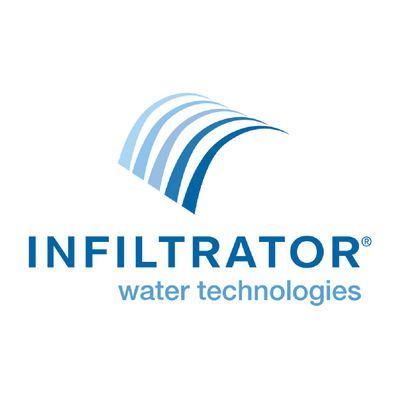Choosing a Septic System for Your Property with Help from a Plumbing Contractor
Choosing the right septic system for your property is a critical decision that can affect its functionality and value. In this article, we will explore the various aspects of selecting a septic system and how consulting with a professional plumbing contractor can simplify the process. This guide aims to provide you with insightful information, guiding you through the necessary steps and considerations.
Understanding the Basics of Septic Systems
For properties not connected to a municipal sewer line, septic systems are integral. They provide a private system for wastewater treatment, a necessity for rural or suburban areas. The system's ability to manage waste efficiently relies heavily on its components, making it essential to understand each part.
The primary purpose of a septic system is to safely process and manage wastewater from a household, preventing contamination of groundwater. It treats household wastewater in an underground tank, where solid waste settles, and the effluent is filtered through the soil. A proper understanding of this process ensures better decision-making when selecting a system.
Septic systems differ from sewer systems, which are managed municipally and often involve lengthy pipelines and treatment facilities. Understanding the difference helps homeowners appreciate the autonomy, responsibility, and potential cost-effectiveness of septic systems. Knowing these basics is crucial as the U.S. plumbing market, including septic systems, is projected to reach $158.6 billion by 2029, according to Jobber, highlighting the sector's growth and demand for expertise.
Evaluating Property Requirements
Evaluating property requirements with the help of a local plumbing contractor is a foundational step in selecting the appropriate septic system. The soil quality and type on your land dictate the system's efficiency and longevity. It is crucial to conduct soil tests to measure permeability, ensuring it can adequately filter effluent before reaching groundwater.
Zoning laws and regulations are also pivotal in determining the septic system choice. These laws vary by region and can dictate the specific type of systems permitted, affecting installation and design considerations. Navigating this bureaucratic landscape becomes more manageable with a clear understanding or help from a professional.
Additionally, the size, layout, and climate of your property have implicit effects on the system's selection. Larger properties may accommodate more extensive systems or incorporate alternative layouts. Climate considerations, such as freeze-thaw cycles or heavy rainfall, must also be factored into the planning and installation processes.
Choosing Professional Guidance
A professional plumbing contractor plays an instrumental role in selecting and installing a septic system. Their expertise ensures compliance with local regulations and optimal system design. Contractors bring a wealth of experience and have knowledge of the best practices and newest technologies in the market.
When selecting a contractor, considering their credentials is crucial. Look for licensure and experience to ensure quality workmanship and accountability. Trusting a knowledgeable contractor also facilitates communication about your specific needs and any concerns you might have.
Evaluating past work and references of a contractor adds a layer of assurance. It's wise to review their previous projects to assess the quality and reliability of their work. The U.S. plumbing market's growth highlights the industry's vitality, making informed choices regarding contractors becomes even more critical.
Reviewing Different Types of Septic Systems
There are various types of septic systems, each catering to different property needs and environmental conditions. Conventional septic systems, commonly used in residential areas, rely on gravity to move effluent from the tank to a leach field. They require particular soil conditions for effective operation.
Chamber systems, a popular alternative, offer more design flexibility and can accommodate fluctuating water levels better than traditional systems. These systems use chambers instead of pipes and gravel, providing a robust solution in areas with challenging soil conditions. They also facilitate easier installation and maintenance.
Advanced systems, like aerobic treatment units and drip distribution systems, provide additional treatment options for complex site conditions. Aerobic systems inject oxygen to support bacterial breakdown, ideal for areas with high water tables. Drip distribution systems involve a more controlled distribution of effluent, suitable for various soil types.
Understanding the Installation Process
The installation of a septic system involves several critical steps, starting with site preparation and excavation. Proper preparation ensures the site will accommodate the system without compromising its integrity. Identifying the right location based on soil and topographical conditions is a priority.
Choosing appropriate system materials and components is essential to guarantee long-term performance and reliability. The selection should consider material durability, cost, and environmental impact. Quality components can reduce maintenance needs and extend the system's lifespan.
Timelines for septic system installation can vary based on multiple factors, including property-specific requirements and local regulations. The process requires meticulous planning to ensure compliance with local codes. Testing and setup procedures post-installation assure the system's operational success and adherence to regulatory standards.
Maintenance and Longevity of Your Septic System
Regular inspection and pumping by your plumbing contractor are necessary to preserve the performance and longevity of a septic system. Maintenance should follow a schedule based on the household size and water usage. Keeping up with maintenance helps identify potential issues before they escalate.
Adopting preventative measures and best practices can avert system failures and guarantee consistent operation. Simple habits, such as mindful water usage and periodic inspections, contribute significantly to maintenance efforts. Communicating with professionals regarding best practices ensures informed and proactive management.
Monitoring signs of potential problems is critical for timely interventions. Early detection of issues, such as slow drainage or unusual odors, can prevent extensive damage. Long-term cost considerations, alongside potential upgrades and lifespan extension options, must be factored into the management plans.
Environmental and Financial Considerations
When choosing a septic system, it's important to balance both environmental responsibility and financial planning. An eco-friendly system not only safeguards groundwater but also contributes to the overall health of your property's ecosystem. Advanced systems with improved filtration and treatment can significantly reduce the risk of contamination, making them ideal for environmentally sensitive areas.
From a financial standpoint, homeowners should consider both the upfront installation costs and long-term expenses. While conventional systems may be more affordable initially, advanced systems can provide savings in reduced maintenance and greater durability over time. A plumbing contractor can help weigh these trade-offs, ensuring you select a system that aligns with your budget while offering sustainable performance.
Factoring in both environmental impact and cost-effectiveness ensures your septic system choice supports the long-term value of your property. Investing in the right system early on can help avoid costly repairs, regulatory fines, or environmental issues down the road.
Preparing for Future Needs
Septic system selection should not only address current household demands but also anticipate future changes. Families may grow, property usage may shift, or additional structures like guest houses or workshops may increase water usage. Planning ahead ensures the system has the capacity and adaptability to handle these adjustments without requiring a complete replacement.
Technology in septic systems is continually evolving, offering options that improve efficiency and sustainability. Choosing a system with upgrade potential allows homeowners to integrate new components as innovations become available. A plumbing contractor can guide you toward systems designed with flexibility in mind, helping safeguard your investment over the long term.
Making an informed choice about your septic system requires careful consideration of property specifications, accurate information about system types, and professional guidance. Stay informed and proactive about maintenance to protect your investment and the environment. If you're in search of a reliable plumbing contractor, look no further than Waterboy Plumbing Service. Contact our team today to learn more!








